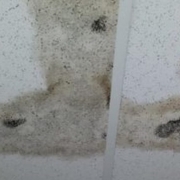Toxic-Building Mold Has Grown in the Nation’s Capital
Washington, DC – Like the ubiquitous fungi blamed for an insurance crisis in Texas, the issue of toxic-building mold has grown in the nation’s capital. A bill introduced in the House on Thursday is the first national legislation of its kind dealing with the issue of toxic mold and, if passed, would require the Environmental Protection Agency and the Department of Housing and Urban Development to establish guidelines addressing mold inspection, testing and remediation – a largely unregulated industry. States could then use the guidelines to certify mold inspectors.
No Standards on Mold
There are currently no professional standards governing building mold inspections, industrial hygiene, risk assessment or remediation, said Joel Segal, legislative assistant for health care and Social Security for Rep. John Conyers Jr., D-Mich. “There’s a lack of standards on (safe mold) exposure (levels).
How you address it, what kind of professional credentials you need to call yourself a mold remediator,” said P.J. Crowley, vice president of the Insurance Information Institute, a New York-based consumer and educational organization, sponsored by the property and casualty insurance industry. The United States Toxic Mold Safety and Protection Act of 2002, also known as the Melina Bill, sponsored by Conyers, also would create a national toxic mold insurance program run by the Federal Emergency Management Agency that is similar to a FEMA-administered national flood insurance pool. “If (the bill is) adopted, insurers will have no excuse but to slash (premiums),” said Melinda Ballard, president of Policyholders of America, an Austin-based homeowners organization that supports the bill.
Sandra Ray, spokeswoman for Southwestern Insurance Information Service, a public information organization of insurance companies in Texas and Oklahoma, said she doesn’t think the FEMA program would cause insurance premiums to go down in Texas. Higher public anxiety The combination of high-profile litigation, media attention and lack of science has led to increased public anxiety about building mold, sparking more and more mold claims, said Crowley. This has driven up insurance costs and led to an insurance affordability and availability crisis in Texas.
“We could see that same scenario evolve in other states,” he said. The estimated total number of Texas mold claims rose from 1,050 in the first quarter of 2000 to 14,706 in the fourth quarter of 2001, and the average cost per Texas policyholder due to mold increased from $23.32 in the first quarter of 2000 to $444.35 in the third quarter of 2001, according to Insurance Information Institute estimates and Texas Department of Insurance data.
A statement released by the American Insurance Association called for the resolution of the issues addresses in Conyers’ bill to not proceed until more definitive scientific guidelines regarding the health effects of mold are established. “Let’s develop sound science on the true health effects of mold,” said Julie Pulliam, an AIA spokeswoman who said lobbyists will be working with Conyers about the bill but that it is too early to say whether those efforts will be for or against the legislation. “We’re going to study the bill. We can’t say if we support or oppose it at this point.” The bill calls for the Centers for Disease Control and Prevention and the National Institutes of Health to conduct a long-term study of the health effects of toxic mold.
Health Problems Caused by Mold
Molds are in the air and on various surfaces everywhere, including inside homes and other buildings, and can cause health problems such as nasal stuffiness, eye irritation or wheezing for people sensitive to them, according to the CDC. More severe reactions, including fever and shortness of breath, may occur among people with serious allergies to mold and those exposed to large amounts of mold in occupational settings. People with chronic illnesses, including obstructive lung disease, can develop mold infections in their lungs. There are a few case reports that toxic molds inside homes can cause unique or rare health conditions such as pulmonary hemorrhage or memory loss, but a causal link between the presence of toxic mold and these conditions has not been proven, says the CDC’s Web site. Mold exposure does not always present a health problem. “There’s a diversity of opinion on mold and its health effects,” said Bernadette Burden, a spokeswoman for the CDC. “It is a very large issue.” She said the CDC has not done an in-depth study on the health effects of toxic mold other than one on children in the Cleveland, Ohio, area. As far as a causal link between mold and health problems based on CDC research, “We have not seen it,” said Burden. “That does not mean it does not exist.” Scientists are in disagreement on the more toxic effects of mold, said Mary Smith, director of the indoor environments division of the EPA.
The bill also calls for mandatory mold inspections of buildings and for a 60 percent tax credit to help people pay for toxic mold risk assessment, inspection and remediation as long as the amount doesn’t exceed $50,000 for the taxable year.







